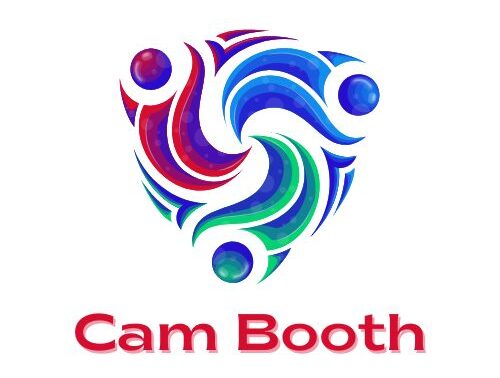The digital landscape is evolving at light speed, and businesses need skilled marketers to stay ahead. Whether you’re contemplating a career in digital marketing or you’re already part of the industry and looking to level up, you’re likely wondering—do you really need a degree in digital marketing to succeed?
This blog dives into the pros, cons, and industry insights to help you decide whether investing in a formal degree program is the right move for your aspirations. You’ll also learn about alternative paths and what employers really value in this expansive, skill-driven field.
What is Digital Marketing and Why is It Important?
Digital marketing encompasses all marketing efforts that use the internet or electronic devices to connect with audiences. From social media campaigns to SEO strategies and email marketing, it’s the backbone of modern business.
With global ad spending in digital surpassing $600 billion in 2023, having expertise in this field is more critical than ever. But mastery in digital marketing involves a mix of creativity, analytical skills, and technical know-how—making it essential to consider how to develop these skills effectively.
A traditional degree in digital marketing is one option. But is it the best one? Let’s look at the why and how behind earning a degree in this rapidly changing industry.
What to Expect From a Degree in Digital Marketing
A degree in digital marketing typically equips you with foundational knowledge needed to succeed in this field. Here’s what most programs offer:
Core Subjects
During your program, you’ll be exposed to:
- SEO and SEM – Learn how to optimize websites to rank higher on search engines and manage paid ad campaigns.
- Social Media Marketing – Master content strategies and paid campaigns on platforms like Instagram, Facebook, and LinkedIn.
- Email Marketing – Explore how to nurture leads and retain customers through effective, engaging email campaigns.
- Data Analytics – Understand tools like Google Analytics to assess campaign performance and ROI.
- Content Marketing – Craft blogs, videos, and other formats designed to drive traffic and convert users.
- UX and Web Design Basics – Gain insights into creating user-friendly website experiences.
By covering these essentials, a degree program aims to provide a balanced mix of soft skills like communication and hard skills such as analytics tools.
Practical Projects and Internships
Most degree programs emphasize hands-on experience. You might find yourself managing mock campaigns, analyzing real-world case studies, or interning with companies to implement what you’ve learned.
Duration and Cost
A digital marketing degree usually takes three to four years to complete if pursued full-time and costs anywhere from $10,000 to $30,000 annually, depending on the institution and country.
But here’s the critical question—does the investment in time and money offer significant career advantages?
The Pros of Earning a Digital Marketing Degree
If you’re deciding between pursuing structured education versus jumping into the workforce or learning independently, these benefits of earning a degree might sway you:
1. Building a Strong Knowledge Foundation
A degree program covers a wide array of topics, ensuring you’re well-rounded and knowledgeable about every angle of digital marketing. Programs focus on both the creative and technical tools you’ll encounter in the industry.
2. Access to Resources and Networking
Colleges and universities often provide access to essential tools (e.g., SEMRush, Adobe Creative Suite). Beyond that, you’ll engage with professors and peers who could become valuable members of your professional network.
3. Employer Recognition
A formal qualification still holds value for many employers, particularly if you’re targeting larger corporations or organizations with structured hiring processes. A degree can often serve as a strong signal of credibility and professionalism.
4. Structured Learning Path
Unlike self-teaching, which can feel overwhelming due to a lack of clear direction, a degree program offers a structured learning environment. You’ll master concepts progressively, which works well for learners who prefer guidance.
The Challenges of Pursuing a Degree in Digital Marketing
While earning a degree has its benefits, it’s essential to also weigh the potential drawbacks.
1. High Cost
The financial investment can be daunting—especially compared to online courses and certifications, which often cost much less.
2. Rapidly Changing Industry Trends
Digital marketing evolves far quicker than traditional curriculum updates. By the time you graduate, some of the tools and strategies you’ve learned may feel outdated.
3. Alternative Credentials Are Gaining Popularity
Industry-recognized certifications like Google Analytics, HubSpot, and Facebook Blueprint are often seen as sufficient by many employers, especially when paired with hands-on experience.
Alternatives to a Digital Marketing Degree
Pursuing a degree is not the only path to success in digital marketing. Many professionals have carved out thriving careers without formal education in the field. Here’s how:
Certifications
Options like Google Ads, Hootsuite, and HubSpot certifications allow you to focus on specific skills. These certifications are often highly valued in the job market and can usually be completed in weeks or months rather than years.
Bootcamps
Digital marketing bootcamps are intensive and cover essential skills and tools in 8-12 weeks. Programs like General Assembly or Springboard are gaining traction for their practicality and shorter time commitment.
Self-Learning
Platforms such as Coursera, LinkedIn Learning, and Udemy offer affordable digital marketing courses at your own pace. Pair your learning with hands-on experiments—create your own campaigns to build a portfolio that demonstrates your skills.
On-the-Job Experience
Internships, freelancing, or volunteer work with local businesses can help you gain practical experience quickly. Many employers prefer candidates with real-world achievements over formal credentials.
What Employers Really Value
The digital marketing industry increasingly rewards candidates who demonstrate tangible results, regardless of how they acquired their skills. Here’s what hiring managers tend to prioritize:
- A strong portfolio showcasing real-world campaigns
- Proficiency with tools such as Google Ads, SEOmoz, or Canva
- Flexibility and adaptability in learning new tools
- An updated understanding of industry trends and algorithms
- Effective communication, both written and verbal
Is a Degree in Digital Marketing Right for You?
Whether pursuing a degree in digital marketing is worth it ultimately depends on your learning preferences, budget, and career goals.
Consider a degree if you:
- Want a comprehensive, structured program to build foundational knowledge
- Value the networking opportunities offered by formal education
- Plan to target large organizations that prioritize formal qualifications
Consider alternative paths if you:
- Would prefer a time- and cost-efficient way to gain relevant skills
- Thrive in self-paced learning environments and hands-on experimentation
- Are targeting startups or freelance gigs where practical experience matters most
Key Takeaway
Digital marketing is a skills-driven industry, and success hinges on building expertise no matter which educational path you choose. For some, a digital marketing degree provides the confidence, network, and credibility needed to get started. For others, certifications, bootcamps, and real-world experience may be more effective.
Not sure where to begin? Start exploring the best certification courses or consider enrolling in free online workshops to see what works for you. Whichever path you take, make sure you keep learning, experimenting, and staying curious—the keys to thriving in this dynamic field.
FAQs
1. Do I need a degree to succeed in digital marketing?
No, a degree is not mandatory to succeed in digital marketing. While formal education can provide foundational knowledge and credibility, many professionals build successful careers through certifications, self-study, and hands-on experience.
2. What certifications are most valuable for digital marketers?
Certifications from platforms like Google (e.g., Google Ads, Google Analytics), HubSpot, and Facebook are highly regarded in the industry. Consider choosing certifications that align with your career goals and desired area of expertise.
3. How long does it take to become proficient in digital marketing?
The timeline varies depending on your current skill level, the time you dedicate to learning, and the specific area of digital marketing you’re focused on. Some can gain proficiency within months through intensive bootcamps, while others may take longer if learning part-time.
4. Can I learn digital marketing for free?
Yes! Many platforms offer free resources and courses, including Google Digital Garage, HubSpot Academy, and YouTube tutorials. These resources can provide a solid foundation without any financial commitment.
5. What skills are essential in digital marketing?
Key skills include SEO, content creation, social media management, data analysis, email marketing, and paid advertising. Soft skills like creativity, adaptability, and problem-solving are also critical to succeed in this evolving field.
6. Is digital marketing a good career choice?
Absolutely! Digital marketing offers a dynamic career path with opportunities in various industries. With the growing importance of online presence, demand for skilled digital marketers is on the rise, providing a stable and potentially lucrative career.









